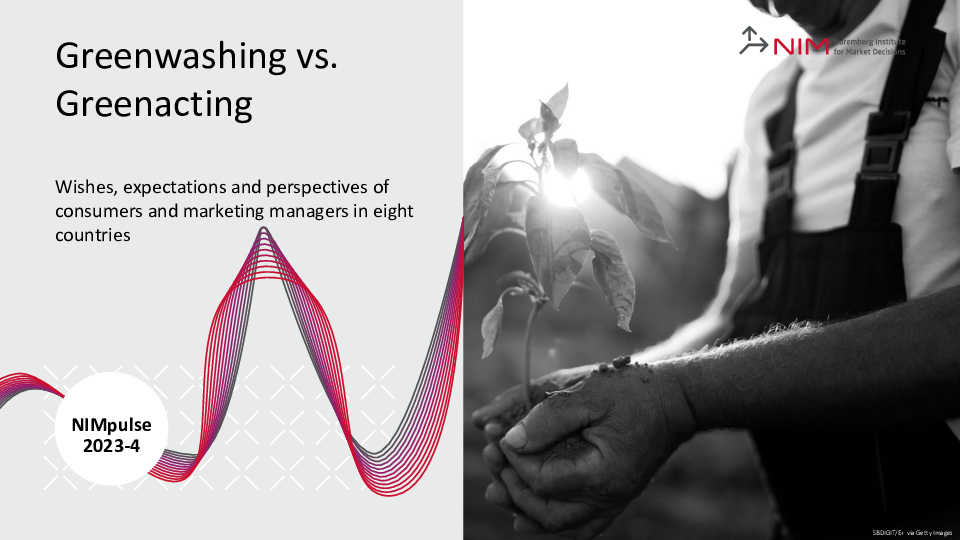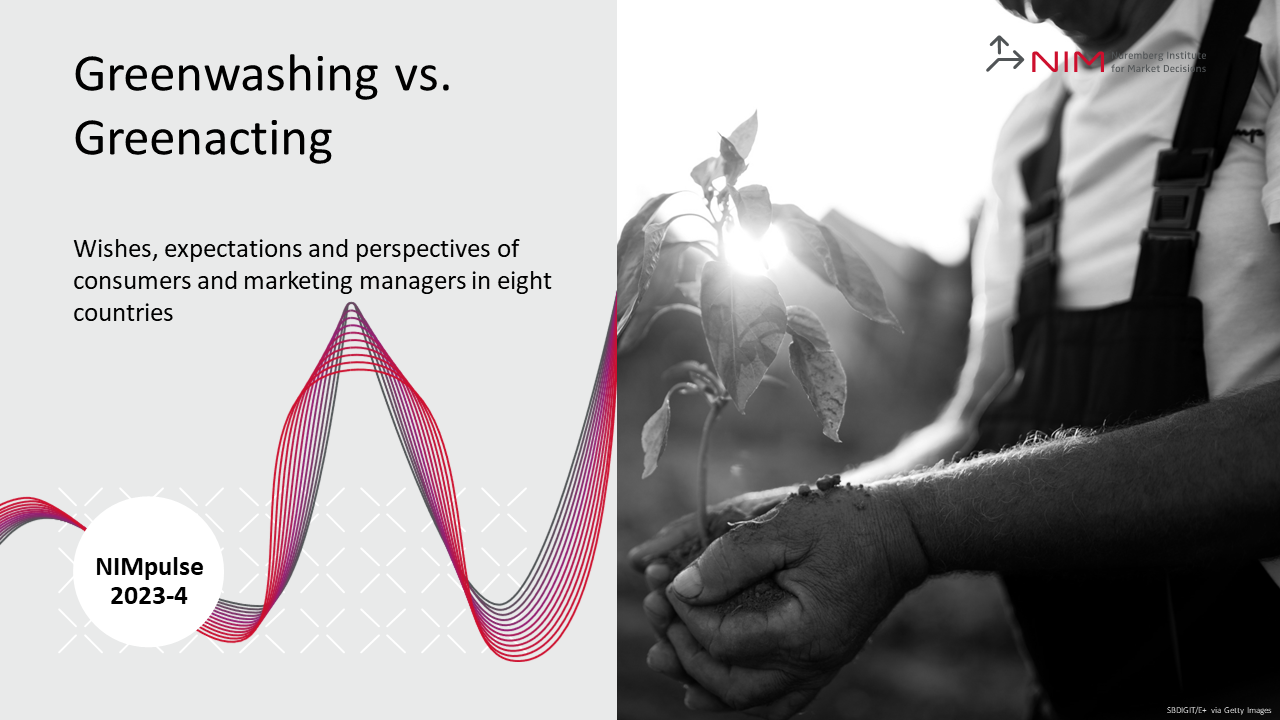Study
 Download
Download
Biró, T., & Neus, A. (2023). Greenwashing vs. Greenacting: Wünsche, Erwartungen und Perspektiven von Konsumenten und Marketingmanagern in acht Ländern. NIMpulse 2023-4.
Greenwashing vs. Greenacting
Whether it's cosmetics, food or electronics, consumers are currently under the impression that almost all products promise properties such as climate-neutral, plastic-free or recyclable.
This study confirms this: 52 percent of the companies surveyed currently use green claims, i.e., advertising statements related to the environment and sustainability, in their customer communications. In doing so, they are meeting a great demand – sustainable shopping is important for 76 percent of the consumers questioned.
For the study, NIM surveyed consumers and marketing managers in eight countries. The aim was not only to measure attitudes and usage in the context of sustainability-related product promises. It also focused on the phenomenon of greenwashing. How do consumers react when companies actively communicate that they are behaving sustainably, even though this would not stand up to critical scrutiny?
In addition to major industrialized countries, the study includes South Africa and Brazil, two emerging economies from the so-called global south. The figures from these countries are of particular interest, as they are considered to be very strongly affected by the consequences of climate change. However, caution should be exercised when interpreting the figures, as experience has shown that the online survey method tends to reach more highly educated people from economic centers in these countries.
Climate change is a global problem that requires global action to resolve. The market decisions of consumers and companies are a key factor in this. This is another reason why the international comparison made for this study is so relevant.

